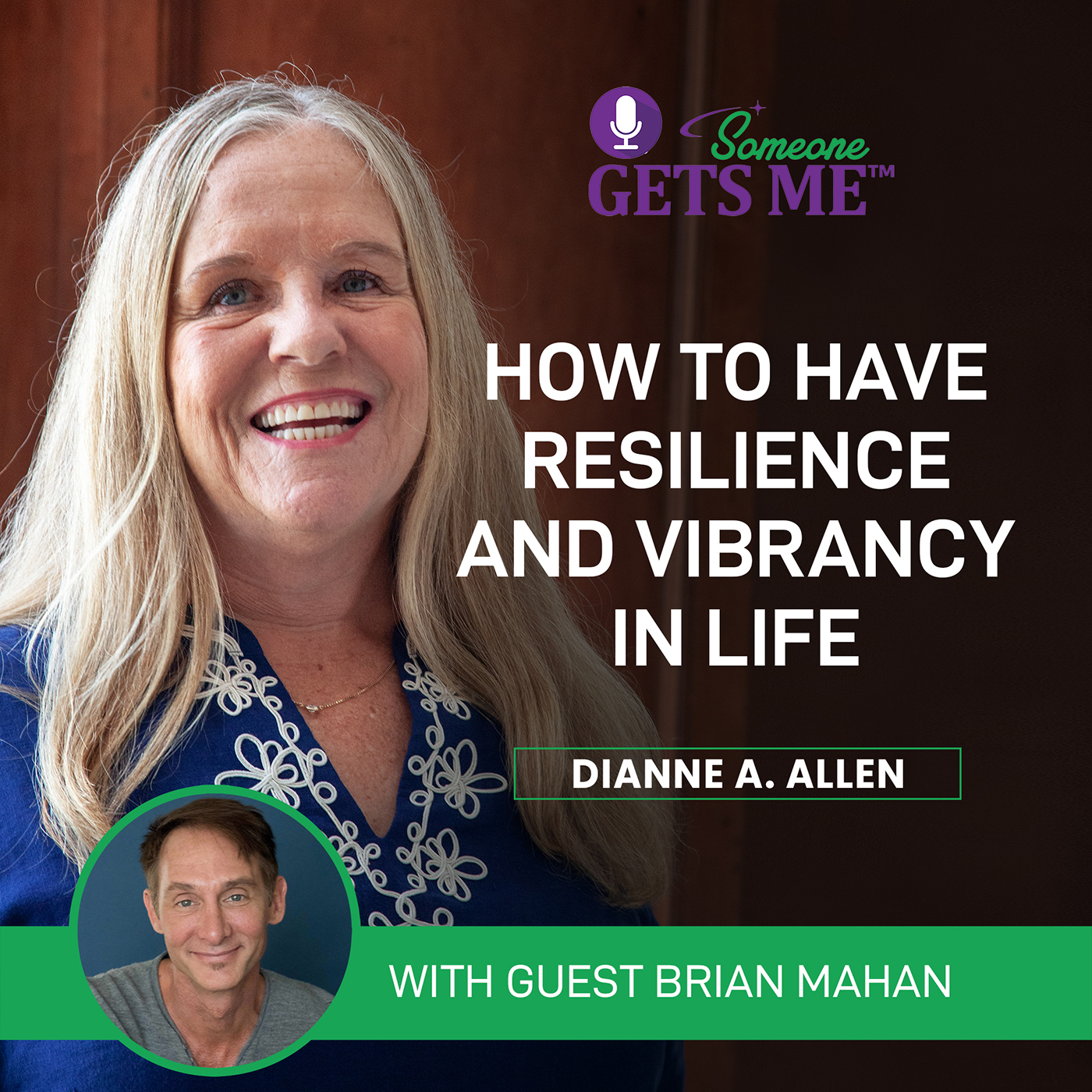“What we want to do ultimately in healing is to nurture and support healthy shame.”
— Brian Mahan (19:32-19:39)
Sometimes, our capacity to recover quickly from difficulties depend on two things: are you afraid of being different? Or you’re afraid of being like everyone else?
In this week’s episode, we are joined by Brian Mahan, who has helped many trauma survivors, a Somatic Experiencing Practitioner, specializes in the physiology of stress and in renegotiating shock and developmental trauma.
Part One of ‘How to Have Resilience and Vibrancy in Life with Brian Mahan’
He suffered from developmental trauma, social anxiety, self-sabotage, self-loathing, shame, low self-esteem, depression, habitual re-enactments, and then came the 7-10 full-blown panic attacks every day, following a catastrophic car wreck.
After three sessions with a Somatic Experiencing Practitioner, my panic attacks stopped, and I entered the three-year training program to become a Somatic Experiencing Practitioner two weeks later. Since 2004, thirteen of his clients have become practitioners as well. That is a true testament to the power and efficacy of his work.
“We can’t change the past, but we can change who we are and our relationship to it.” – Brian Mahan (41:46-41:49)
When he was a child, he felt like there wasn’t anything that he could say or do enough. He learned to be whoever he was surrounded with. But when he was around more than two people, he became invisible and quiet. Those experiences made him realize that shame is used in every culture since the beginning to socialize children. It’s been used to protect the tribe, family, or the community. It’s also used to establish power and maintain the hierarchy. He describes it as a ubiquitous human experience.
He says, “I didn’t understand that my inability to socially engage was a result of the shame I felt for being different and not like everyone else.” And this is something we can all relate with, right?
Sometimes, it’s not easy to recognize shame because it’s not always visible on the surface. When you’re talented, gifted and successful, shame can kick in because what you have sets you apart from other people. But there are two different kinds of shame: toxic shame and healthy shame. What’s the difference between the two?
Part Two of ‘How to Have Resilience and Vibrancy in Life with Brian Mahan’
Toxic shame is when we identify with something negative like:
“I’m bad.”
“I’m less than broken.”
“I’m different.”
“I’m damaged.”
“I don’t belong.”
“I don’t have value.”
“I’m broken.”
“I’m unlovable and unlikeable.”
To experience ultimate healing, what we want to do is nurture and support healthy shame. In the transmutation of toxic shame into healthy shame, we can use the power of discernment. It’s okay to recognize and acknowledge that you make mistakes. Thus, that helps us in socialization because shame exists around it.
We’re normally dependent upon others for our survival. And so, even as an infant, we have an instinctual drive to connect, join and maintain that relational connection no matter what. The experience of shame is the fear of having an interpersonal bridge be broken and the risk of being abandoned or neglected.
Brian shares the value in healing shame by stating, “In healing shame, what we work on is expanding the container of an adult, to be able to remember the dismembered parts and you can express yourself with authenticity.”
“There’s a way to rebuild your belief system in a way that’s functioning and healthy.” – Dianne A. Allen (56:49-56:55)
You can embrace every bit of what you have while setting a boundary between which parts you choose to come out and play, depending on which circumstances and people. You can choose to freely behave differently at church than you do at a football game. It doesn’t mean you’re being inauthentic; it only shows our capacity to be multifaceted. And that’s what gifted people are good at – thinking on multiple dimensions effortlessly. You may be asking, what does trauma have to do with all these things?
Brian is not a traditional talk therapist, which means he believes that too much of the narrative can keep retelling the story and cause more trauma. His initial rule for the first two sessions is – no narrative. We have to learn to outgrow the story and focus on heading to the next level of freedom. Trauma isn’t a life sentence that you have to get stuck with forever.
About Brian Mahan
Brian D. Mahan, SEP, is not a traditional talk therapist. He is a Somatic Experiencing Practitioner (SEP), who specializes in fully resolving:
- Anxiety disorders
- P.T.S.D.
- Social anxiety
- Panic attacks
- Dissociative disorders
- Depersonalization
- Derealization
- Developmental Trauma
- Birth trauma
- Shame
- Abuse and neglect
- Attachment/detachment issues
- Shock trauma
- Divorce
- Loss
- Medical procedures
- Accidents
- Falls
- Car wrecks
- Near death experience
- Acts of violence
- Physical
- Sexual
- Psychological
Follow him on Instagram & Twitter – @BrianDMahanSEP
Facebook: https://web.facebook.com/BrianDMahanSEP
Youtube: https://www.youtube.com/user/ExperiencingSomatic
How to Connect with Dianne A. Allen
You have a vision inside to create something bigger than you. What you need are a community and a mentor. The 6-month Visionary Leader Program will move you forward. You will grow, transform and connect. http://bit.ly/DianneAAllen
Join our Facebook Group Someone Gets Me
Follow our Dianne’s Facebook Page: Dianne A. Allen
Email contact: dianne@visionsapplied.com
Dianne’s Mentoring Services: msdianneallen.com
Website: www.visionsapplied.com
Be sure to take a second and subscribe to the show and share it with anyone you think will benefit. Until next time, remember the world needs your special gift, so let your light shine!

Recent Comments